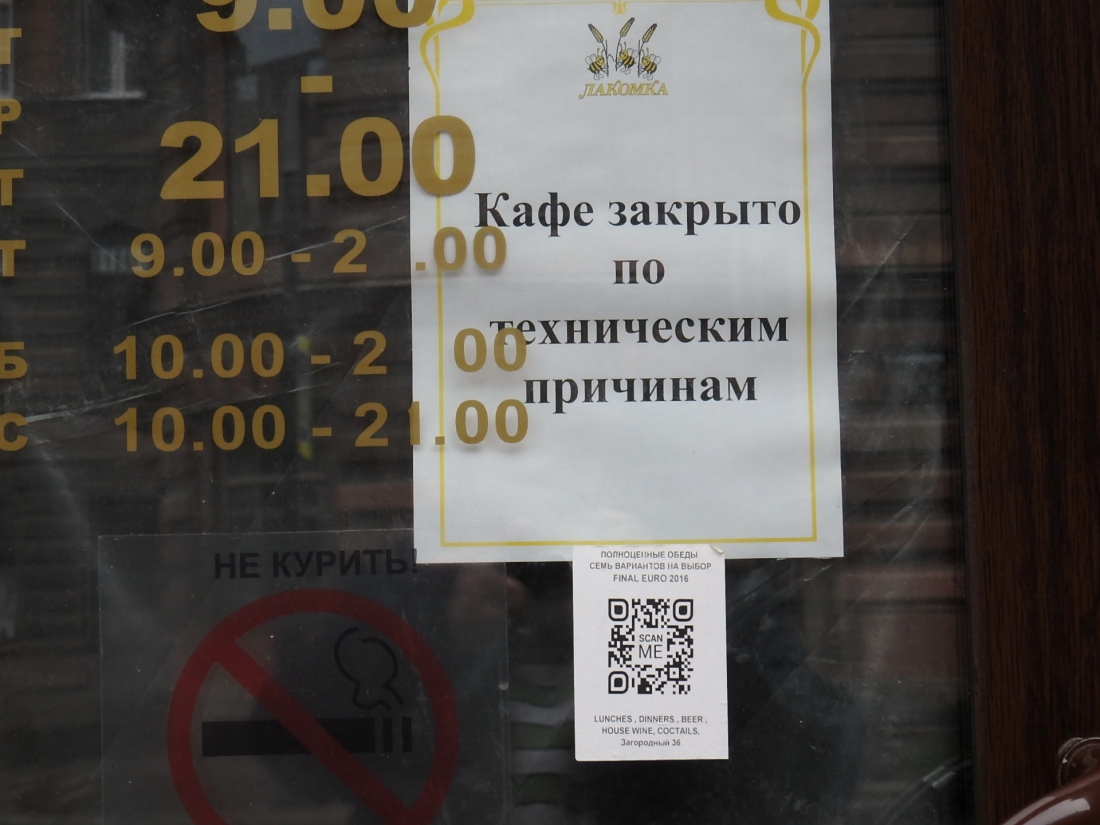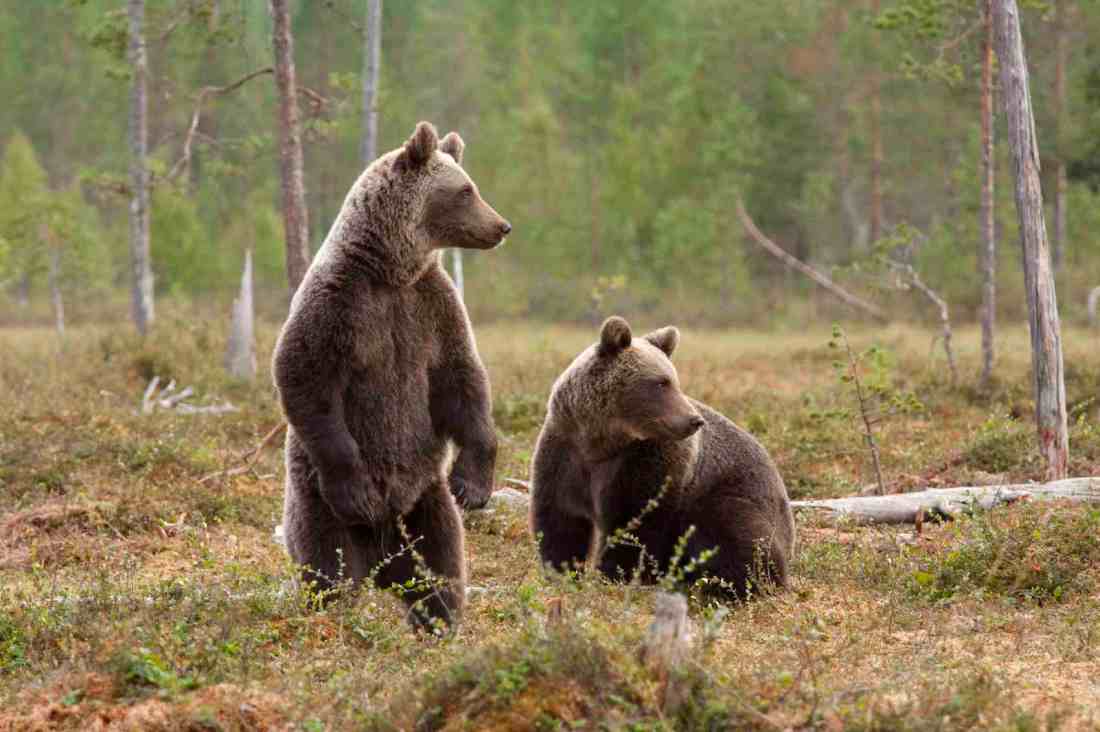
Despair as a Sign of the Times
The general mood of discouragement has been growing because Russia has shifted into idle, and it is unclear when and how it will end
Nikolay Mironov
Moskovsky Komsomolets
September 6, 2016
Pain and despair have seized the country. Russians are losing their jobs. They cannot pay back their debts and feed their children. Due to constant problems and the lack of apparent prospects, families are falling apart. Some make desperate decisions, finally putting an end to their lives. Russia is losing people.
In July, an employee at a sports school in Trans-Baikal Territory committed suicide after he was not paid. In early August, a married couple in Blagoveshchensk, who were up to their eyeballs in debt,. jumped from a fourteenth-floor window, leaving their young child orphaned. This spring, a father of five in Kiselyovsk in Kemerovo Region hung himself because of debts. Large numbers of similar reports have been coming from different parts of the country.
Can you live on a wage of 10,000 to 15,000 rubles a month when prices are rising continuously? [15,000 rubles is currently equivalent to approximately 200 euros. — TRR.] Or on a pension of 8,000 rubles a month? How do you raise children on this kind of money? And what if, God forbid, you have emergency expenses, for example, for expensive medical treatment, whose cost exceeds the family budget many times over? Well yes, Russia has free medical care, so to speak, but we all knew what it is really like.
It has terrible consequences. The wave of cancer patients voluntarily departing from life continues. After a series of well-publicized cases in 2014–2015, the situation has not improved this year. In mid August, a man suffering from the cancer in the Moscow Region committed suicide with explosives. In June, another cancer patient committed suicide in Yaroslavl. Despite numerous similar suicides, the Russian Health Ministry continues to claim there is no link between the suicides of cancer patients and a deficit of pain medication. Just as there is no link, of course, between the despair felt by cancer patients in our country and the state of Russian medical care, which generally gives little chance to defeat the disease to those who have no money.
According to Rosstat, 24,000 to 26,000 people take their lives each year in Russia. But the causes of this and the means of remedying the situation are not discussed seriously. Instead, Rospotrebnadzor (Russian Federal Service for Supervision of Consumer Rights Protection and Human Welfare) have drafted recommendations for reporters on how to cover suicides.
Fewer and fewer people in our country know what they are going to live on tomorrow, how they will pay for rent and medical care. Russia is plunging into poverty. People have lost their sense of stability and security. The government, on the other hand, ignores these problems. It clearly has no strategy or even tactics for solving them.
There are a gazillion “public servants” in Russia, more than in the Soviet Union, but they serve only themselves and their bosses. High-ranking officials and the business clans that have fused with them live in a secure and comfortable world, whereas the common people are forced to survive alone. The civil service has lost its effectiveness. It has turned into a caste of masters and lords from whom we cannot defend ourselves, because they are the power, while we are “cattle.”
Can fear of policemen really be a norm of a civilized life, of a civilized country? Yet lawlessness on the part of the police has remained. All the talk about combating it has been just that—talk. Here is a recent case. Igor Gubanov, a resident of Magnitogorsk, protested against police lawlessness by cutting off two of his fingers. He could find no other way of making himself heard. In January, Gubanov and his wife, who live in a communal flat, were taken to a police precinct where, according to Gubanov, policemen raped his wife. A criminal investigation was launched, but soon the police investigators closed it, accusing the victimized woman of making false charges.
Despair is felt not only by people who have decided to commit shocking acts. The overall mood of discouragement has been increasing due to the fact Russia has shifted into idle and got stuck in the doldrums, and it is unclear when and how it will end.
The national anthem and memories are all that remain of the once-great country: outer space, victories, and prestige. The country’s most recent major achievements happened fifty years ago. The “unbreakable union” has been replaced by “our great power Russia,” but what is next? Great and poor, great and impoverished. Do these notions go together? How long can we live like this?
The Russian welfare state exists only on paper. Such declarations, by the way, have also been inscribed in the constitutions of Latin American, African, and Asian countries. A Brazilian in his favela reads that he lives in an wonderful welfare state, and he is amazed. The same is true of our fellow Russians, with their miserable wages and pensions. True, unlike their brothers from the country “where many wild monkeys live,” they do not live in huts yet. But, as they say, the night is young.
The main problem nowadays is that the country lacks a locomotive capable of pulling it out of crisis. The regime is concerned only with self-preservation. Officialdom is corrupt, inefficient, and lacking any strategic benchmarks. The “elite” (which I put in quotations, because they really are not the best people in the country) have been thoroughly denationalized: they have no stake in developing Russia. Until a normal and non-corrupt state makes the “elite” serve the country, it will never move it forward. In this case, what is wanted is the bloody-mindedness of a Peter the Great, who once put an end to mestnichestvo and forced the boyars and gentry to serve the country, or the statesmanship of Alexander II, who abolished serfdom over the lamentations of the landlords.
Instead, pro-government spin doctors have been increasingly ratcheing up the propaganda machine, searching for enemies, and heavily sugarcoating reality. Jingoism has already bored everyone to death. The people directing the show do not believe in it themselves, and the audience has stopped believing in it as well, despite the sunny ideology foisted on them, because Russia is running in place, and no one is solving its problems. The propaganda spiel that enemies are to blame for everything is still functioning, but even it cannot serve as a perennial explanation for each new outburst of social turmoil and, especially, the government’s extremely poor performance. So fine, Obama is a bad guy, but what does that have to do with indexing pensions?
The only thing the regime can really boast about is reinforcing itself. But it is a regime presiding over a country losing its vitality. As a priority, the self-preservation of the “elite” deprives Russia of the chance to put itself back in motion. Yet the purged political arena, in which there is almost no opposition to speak of, much less plain old independent people who think about their country, has stopped generating leaders. There is only one leader left in the country, and he presides over a multilayered horde of bosses and oligarchs, embezzlers and dolts perched on their estates and thinking only of themselves.
Except for United Russia, a product of the same regime, Russia’s political parties have no weight nationwide. The same goes for grassroots organizations. The media have been muzzled. Those who try and shout louder than the rest face either a harsh crackdown or a trivial payoff. Many people have taken to making oppositional noises in the hope they will be paid to shut up. Imitating protest has become a business, just like imitating patriotism. Amid the mob of clowns and crooks, the reasonable speeches made by the few real patriots who are rooting not for themselves but for their country are drowned out by the overall senseless din.
By eliminating potential enemies, the regime has also destroyed the very possibility of an alternative emerging, of a reboot. The current policies are clearly ineffective, but what and who should replace them? Reasonable prescriptions, for example, for supporting the national non-oil economy and import substitution, restoring consumer demand through social assistance to an impoverished population, ending capital flight, going after offshore companies, and clamping down hard on corruption have been voiced. These ideas, however, have come from second- and third-rank players who can advise the authorities but cannot demand anything from them. So the regime has ignored them year after year, thus exacerbating the crisis.
I am not trying to whip up a frenzy. I would like to say something positive, but the situation is firmly deadlocked. It is clear what reforms are needed. It also clear how to implement them and where to begin: with the “elite,” the civil service, the budget, and the tax system. The only open question is who would be capable of doing all this. We have already talked about the government. Russia’s active middle class is small, and it is extremely demoralized. We are left with the rank-and-file population, who have suffered most from the crisis and seemingly have a stake in launching reforms. But for the time being only a few ordinary people have been willing to take responsibility, allowing the regime quickly to localize protests, as happened with the farmers.

In the current environment, self-organization, society teaming up with honest people in the civil service and law enforcement, could be effective. Those honest people are undoubtedly there, but not in leadership roles. The country needs a grassroots organization, a movement, a party that could unite people and impose its own rules on the authorities. Society has to make the first move itself, which will serve as a signal to the honest people inside the system. We have to get the ball rolling.
Responsibility for what will become of the Motherland and us tomorrow lies with each of us today. As Mahatma Gandhi said, “Be the change that you wish to see in the world.”
All we have to do is not be silent, not relinquish our right to speak and act to someone else, not to count on an unknown savior of the Fatherland showing up. If he has not saved the country already, why would he do it now? And, needless to say, do not be afraid. We have to overcome our isolation to put an end to the senseless suicides, severed fingers, and broken lives, to put an end finally to the shameless plunder of the people and the export of the loot abroad. Even the smallest action, as long as it is collective, carries more weight than the most desperate individual deed.
We can, of course, wait for the moment when the country finally goes to hell in a hand basket, as in Tsarist Russia or the late Soviet Union. But do we really have to go through turmoil and destruction every time we need a new impulse to development? Are victims so necessary to the process of recovery?
The country is at a standstill, and the dump truck of history is rushing toward it. There are two options. Either we start the engine and drive, or we wait to get run over and tossed onto the roadside.
Nikolay Mironov is head of the Center for Economic and Political Reform, in Moscow, and a frequent columnist for Moskovsky Komsomolets newspaper. I published a translation of his column “Whipping Bear: Why the President Needs a ‘Bad’ Prime Minister” in June 2016. Translated by the Russian Reader. Thanks to Sean Guillory for the heads-up. Photo by the Russian Reader

























